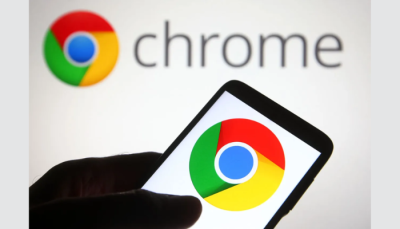Justice Department may force Google to sell off Chrome
Antitrust officials from the Justice Department are coming together to force Alphabet Inc.’s Google to sell off its Chrome browser, the most widely used browser, because it represents a monopolised access point through which many people use its search engine.
According to a Bloomberg report, the department will ask the judge, who ruled in August that Google illegally monopolised the search market, to require measures related to Artificial Intelligence and Google’s Android smartphone operating system.
These antitrust officials and states that have joined the case also plan to recommend on Wednesday that federal judge Amit Mehta impose data licensing requirements. As an implication, if Mehta accepts the proposals, they have the potential to reshape the online search market and the burgeoning AI industry.
Lee-Anne Mulholland, Google’s Vice President of Regulatory Affairs, said the Justice Department “continues to push a radical agenda that goes far beyond the legal issues in this case.”
She added, “the government putting its thumb on the scale in these ways would harm consumers, developers and American technological leadership at precisely the moment it is most needed.”
The report said the government could decide later whether a Chrome sale is necessary if some of the other aspects of the remedy create a more competitive market.
According to StatCounter, a web traffic analytics service, the Chrome browser controls about 61 percent of the US market.
The report further revealed that the US government attorneys met with dozens of companies over the past three months as they prepared the recommendation. States are still considering adding some proposals, and some details could change, it said.
It added that the antitrust officials pulled back from a more severe option that would have forced Google to sell off Android.
Mehta’s August ruling that Google broke antitrust laws in online search and search text ads markets followed a 10-week trial last year. The company has said it plans to appeal.
The judge has set a two-week hearing in April on what changes Google must make to remedy the illegal behaviour and plans to issue a final ruling by August 2025.
The agency and the states have settled on recommending that Google be required to license the results and data from its popular search engine and give websites more options to prevent their content from being used by Google’s artificial intelligence products.
The antitrust enforcers are also moving to propose that Google uncouple its Android smartphone operating system from its other products, including Search and its Google Play mobile app store, which are now sold as a bundle.
They are prepared to seek a requirement that Google share more information with advertisers and give them more control over where their ads appear.
Google now displays artificial intelligence-based answers at the top of its search pages billed as “AI Overviews.”
While websites can opt out of having their information used by Google to create AI models, they can’t afford to opt out of the overviews because doing so would risk pushing them down in search results, making it harder for them to reach their customers.
Website publishers have complained that the feature dampens traffic and advertising dollars since users rarely click through to see the data being used to power those results.


